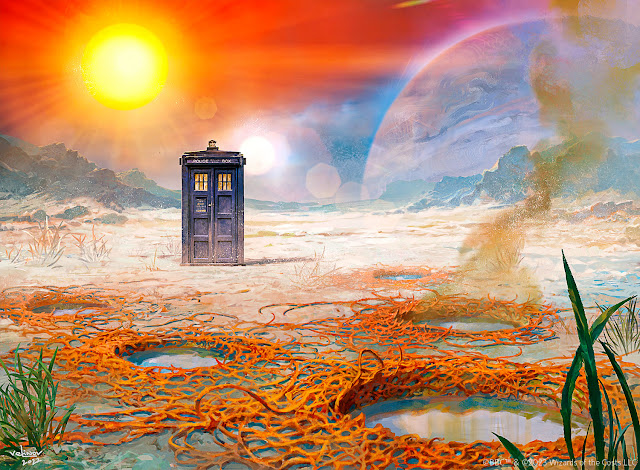The Natural History of Fear [AUDIO/2004.3.2]
★★★★★
I mean, is anyone surprised? As reductive as 'Dr. Who does 1984' is, one way or another, it's an apt way of describing The Natural History of Fear. Oh, no doubt that is far deeper than that simile, but for those Big Finish listeners who aren't followers of the Divergent Universe arc, that's its main draw (or for some, its main red-letter KEEP OUT warning sign). Well, if that makes more people delve into this stone-cold masterpiece of an audio drama, I'm happy either way. The Natural History of Fear is a very daunting slice of Dr. Who to try and talk about, but I'm gonna do it anyway.
It takes a special kind of writer to even attempt something so out of th egrain in the middle of an interconnected series, and of course it's Jim Mortimore who takes on the task. Light City and its inhabitants, a collection of broken husks with voices to talk with, are an immediately memorable group of characters. There is no Doctor here, no Charley or C'rizz, only the Editor, the Conscience, and all manners of eclectic characters that cannibalise the Doctor's adventures to make infotainment episodes to control the mass public. Revolutions rise and fall with a particular rhythm, characters are swapped almost as much as bodies are, our main three actors are given to chance to play practically everyone by exchanging roles... I remember being so confused on my first listen. It took me multiple revisits to finally get what Mortimore was going for here, but once I clocked it, every listen became a pleasure. I think, in a weird twist of fate, this has ended up being one of the most revisited Big Finish adventures from me. My CD is practically worn out by now, and I certainly remember deleting, reinstalling, rinsing and repeating from my Big Finish app. I'm not going to pretend that Natural History has the most profound story in all of Dr. Who -- it really doesn't -- but like The Face of Evil, it's a good exploration of the Doctor's influence in a world and how it may not always be for the better. Paul McGann is the MVP here, playing a sadistic, cowardly shell of his usual role that the actor grasps so completely.
So expect the worst for our beloved main characters; they don't get horribly mutilated here or anything, but the hardships they (or rather, the husks of who they are) face are of a much more substantial, psychological nature that ironically resets with each "cycle", so to speak. It's a neverending pattern of unhappiness, revolution, destruction, rebirth, oppression, and it's a fantastically bleak look for this world of Light City. Like the best of the Divergent Universe entries, this truly feels like a story operating on different modes of logic from the rest of Dr. Who, and it's a beautifully directed and recorded production to boot (again, Gary Russell proves to be the quintessential audio director). I know some who may disagree, but I'm willing to call The Natural History of Fear one of the most memorable (for that surprise twist at the end, definitely) releases the Eighth Doctor has had from Big Finish. A masterpiece without a shadow of a doubt.





Comments
Post a Comment